Dewi van de Klomp's foam furniture morphs and sags in response to its contents
Books, plates and glasses are engulfed by the squishy shelves of Dutch designer Dewi van de Klomp's Soft Cabinets, which are made from foam rubber in a bid to bring more attention to the "overlooked" material. Van de Klomp's Soft Cabinets were born from research into various materials that can be found around the house The post Dewi van de Klomp's foam furniture morphs and sags in response to its contents appeared first on Dezeen.

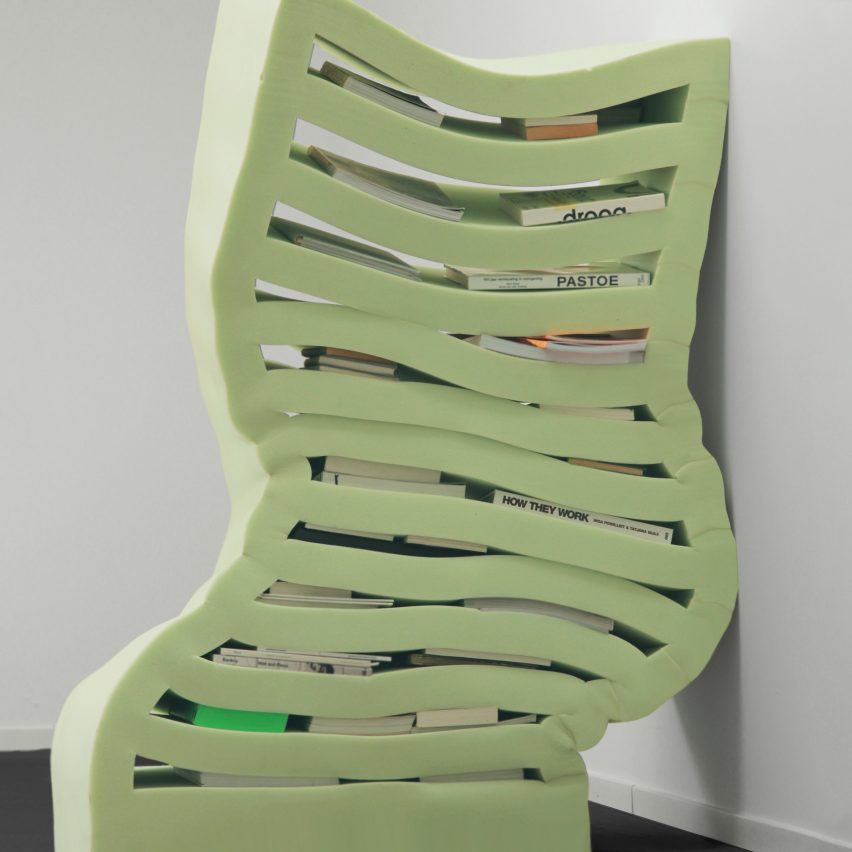
Books, plates and glasses are engulfed by the squishy shelves of Dutch designer Dewi van de Klomp's Soft Cabinets, which are made from foam rubber in a bid to bring more attention to the "overlooked" material.
Van de Klomp's Soft Cabinets were born from research into various materials that can be found around the house and would otherwise go unnoticed.
The Utrecht-based designer came across a piece of bright pink foam rubber – a material typically used for cushioning in car seats and wall insulation – and "fell in love" with its potential.
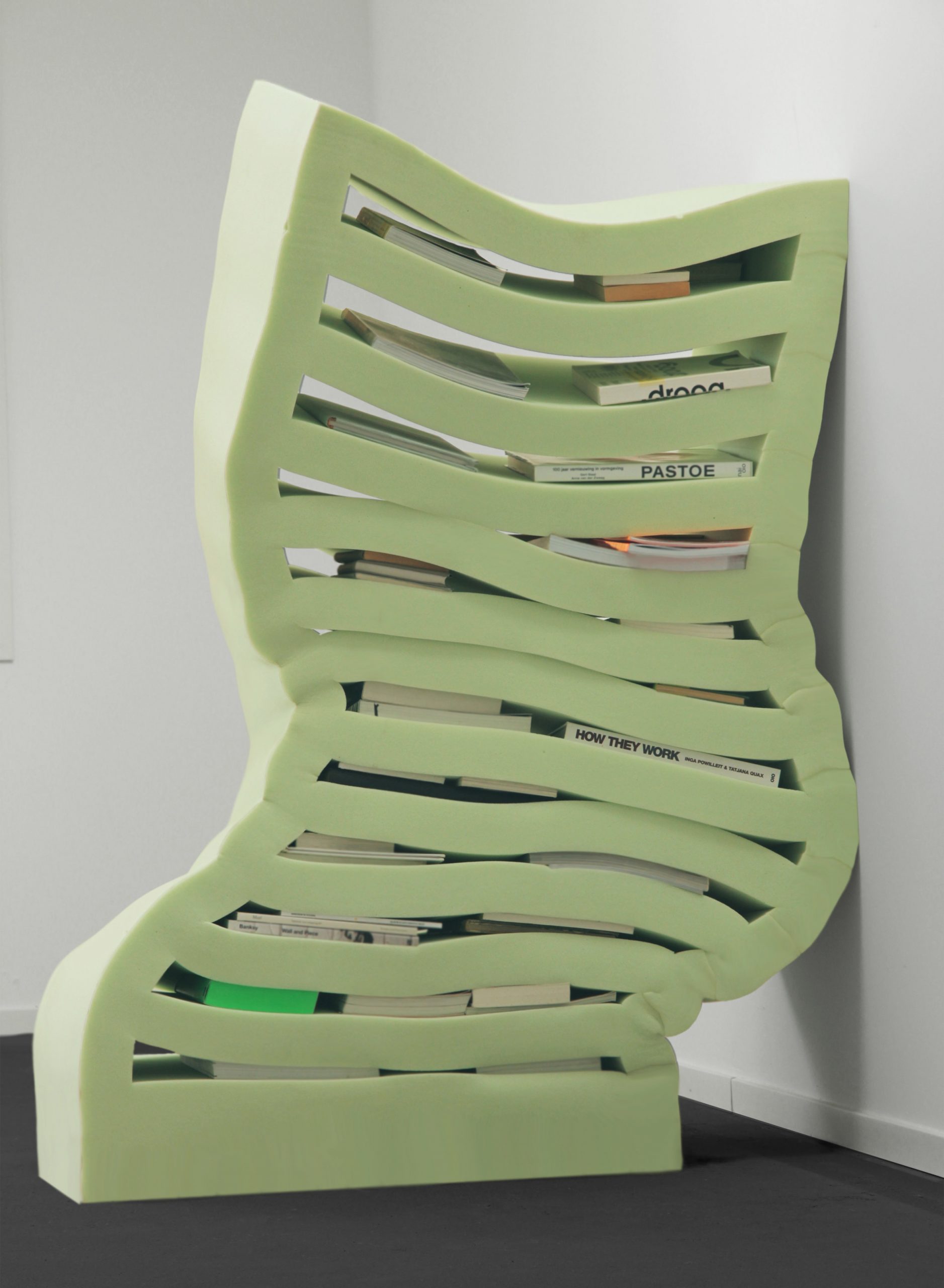
Drawn to the unique texture, colour and shape of the foam, van de Klomp started to experiment with using it to make a series of objects in an attempt to show the material's "poetic side".
"The foam is a relatively overlooked material even though everybody knows it," said the designer. "With the soft cabinets I aim to increase its perceived value."

The foam furniture collection comprises a series of shelves in different shapes and sizes that take on new forms depending on their contents, bending and warping as books, magazines, plates or glasses are slotted inside.
While some sit flush to the ground, others stand on legs that have been slid over a metal frame attached to the wall that the cabinet is placed up against.
Some of the shelves are held in place on the wall by a series of "pins" within the cut-outs in the foam, while others are left to lean on their sides. The more objects placed inside the shelves, the more they sag.
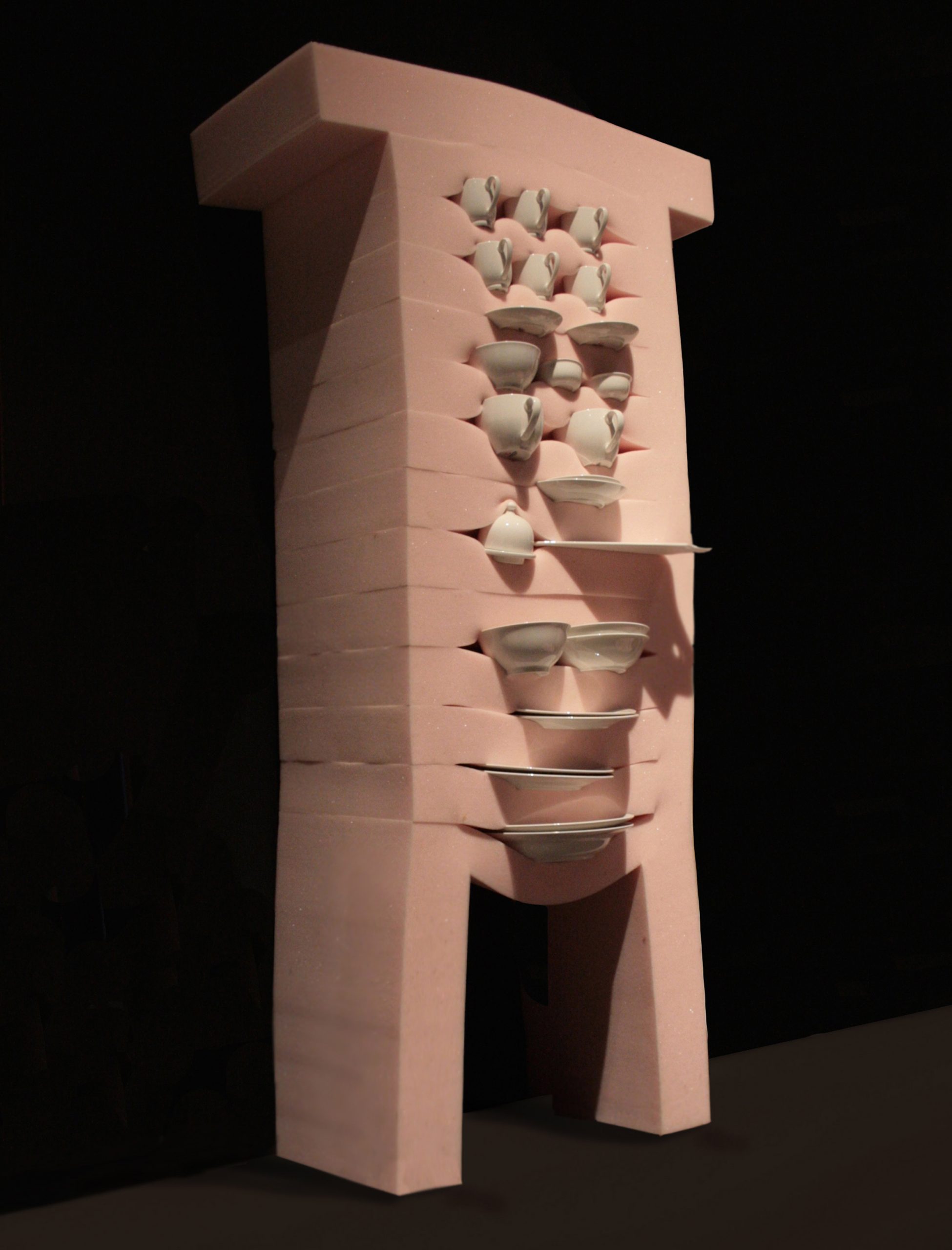
"The cabinets seem almost alive," said the designer, "protecting their content while carrying them in their own way, questioning and challenging our vision of strength and resistance and therewith the material used, in a very poetic way."
Each of the pieces are cut by a machine before being finished off by hand, and are produced on-request only.
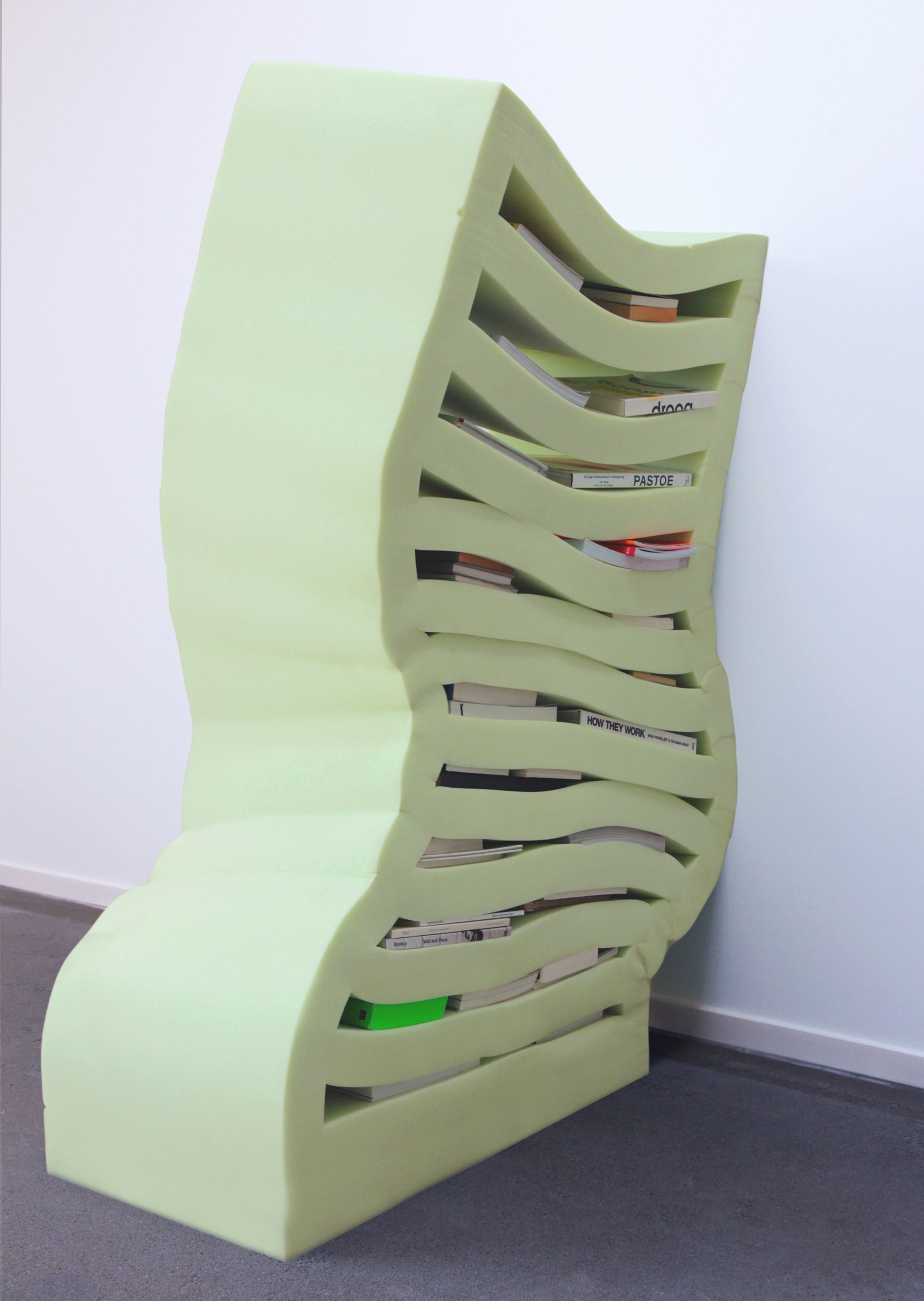
Van de Klomp said her designs have received mixed reviews, with some criticising the cabinets for not being functional enough. However, functionality was not her main goal when creating the pieces.
"Not everyone has to understand or be a fan of my work," she said. "I like to flirt with the boundaries of design. Functionality is not a must. It is about the story that I would like to tell."
"For example, with these cabinets, the work is not about having the most functional cabinet, but rather they are showpieces. Literally, they are designed to show your nicest books or dishes. Not the stuff you are using daily, but the stuff you love so much you want to show it off."
"But also, in a figurative sense, the cabinets show the foam material in its purest form," she added. "They are designed to make you start appreciating the material and to show off the material itself."
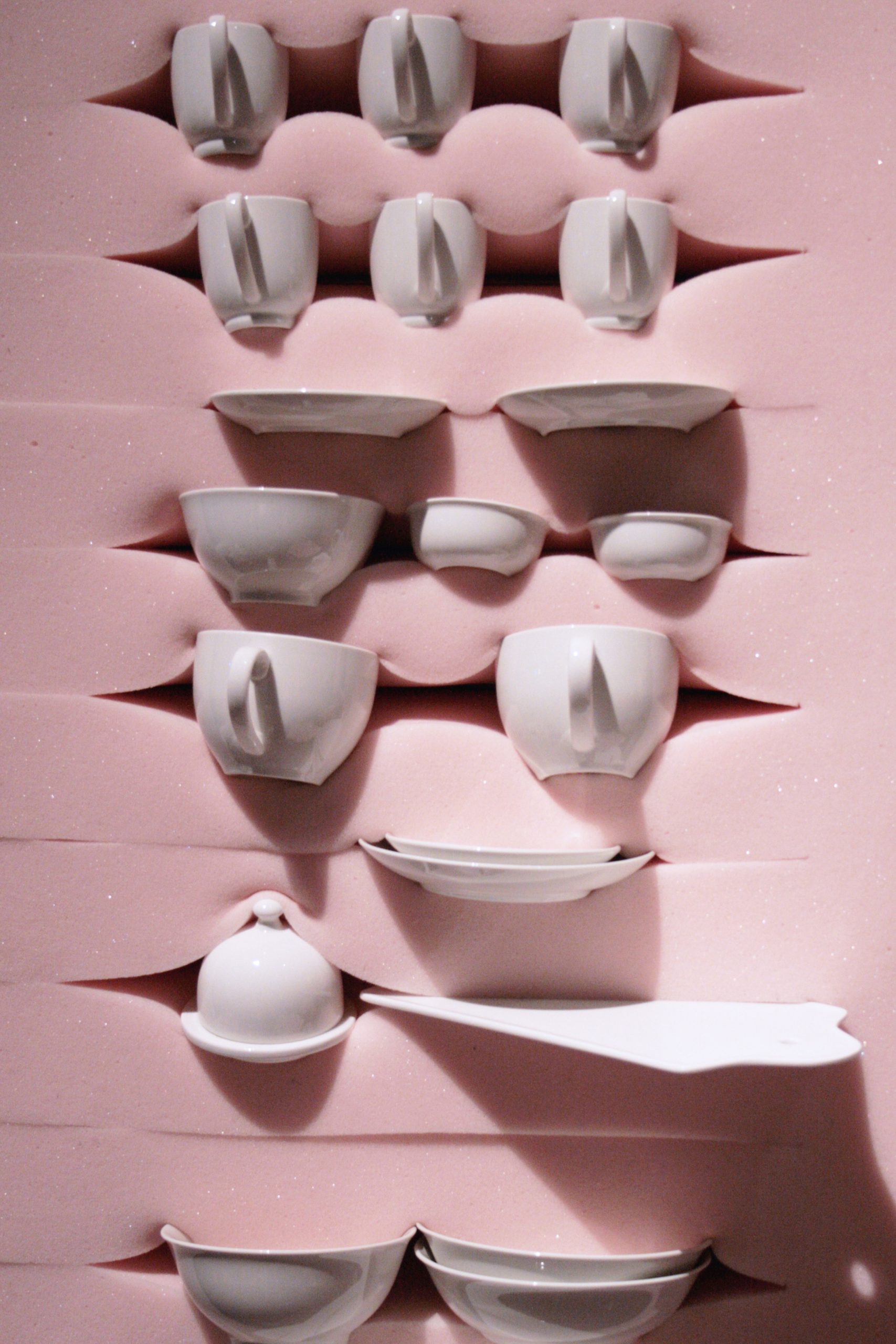
Van de Klomp first released the foam furniture designs in 2013, but recently rereleased a resized version of one of the green cabinets, which now has a wall attachment.
The Soft Cabinets have been presented in several shows, including the Fetishism exhibition in 2015 to 2016 at the Trapholt Museum in Kolding, Denmark, which was curated by trend forecaster Lidewij Edelkoort.
They were also featured in the interiors of Isabel Marant's first men's store in Paris, which opened in 2019.
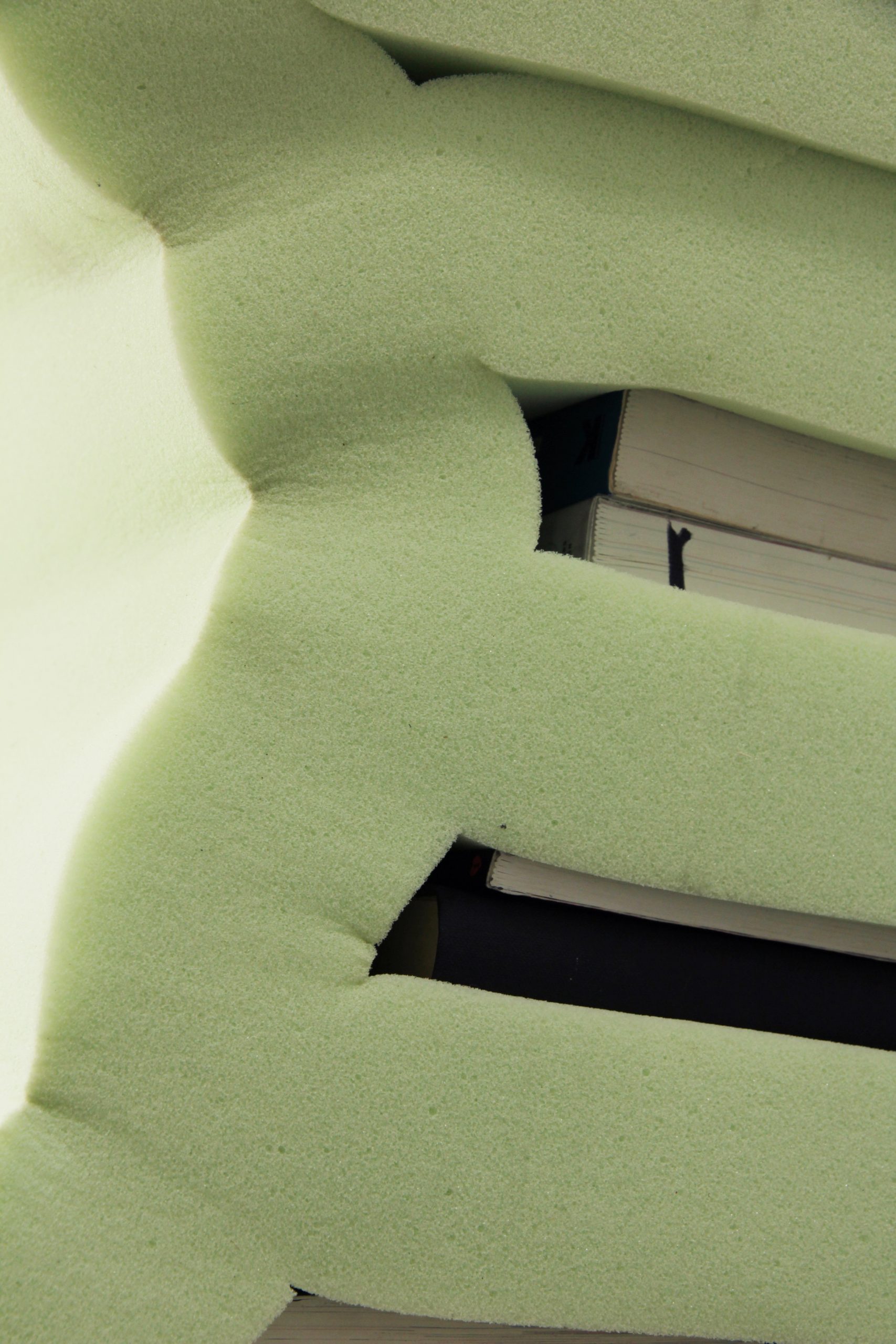
Beirut-based company Blocksfinj also used foam to create a series of furniture that mimics marble and terrazzo, which were shown during the 2018 edition of Beirut Design Week.
The two collections of building blocks, called Moonstruck and Bonding Blues, can be used as stools or stacked to create room dividers and benches and chairs.
The post Dewi van de Klomp's foam furniture morphs and sags in response to its contents appeared first on Dezeen.
